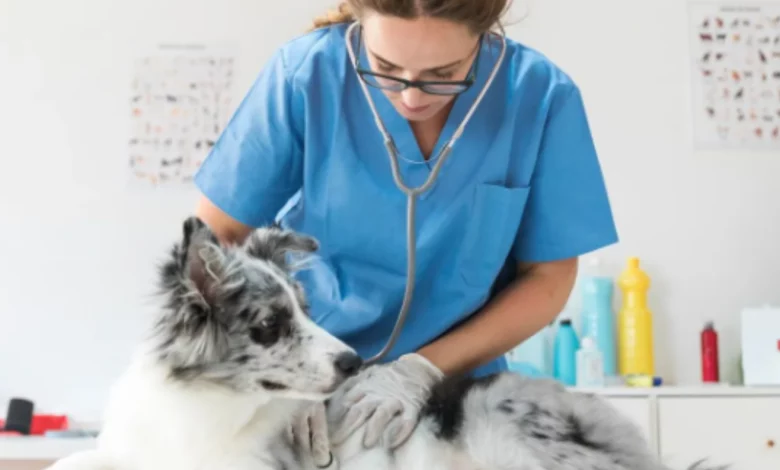Luxury or Duty? The Truth Rarely Discussed

When it comes to pet care, the internet is full of idealistic advice:
regular vet visits, special pet food, scheduled vaccinations, and costly medications.
But the truth—rarely addressed—is that most people around the world can’t afford this level of care, especially in low-income countries, where many individuals struggle to meet their own basic needs.
Pet Ownership in Poorer Communities: A Different Reality
In wealthier countries, veterinary care is often part of a lifestyle of comfort and abundance.
But in many other parts of the world, raising a pet doesn’t stem from luxury—it comes from a human instinct of compassion and a sense of moral responsibility toward a vulnerable living creature.
Can the same standard of care be provided in such conditions?
Honestly, no.

What Can Be Done with Limited Resources?
🐾 1. Practice Simple and Preventive Pet Care
Even without access to advanced medical services, small actions can make a big difference.
- Provide clean, safe food and water — it doesn’t have to be expensive or branded.
- Offer a secure, shaded, and comfortable place to rest.
- Observe changes in your pet’s behavior, appetite, or energy level — early awareness can prevent suffering.
🐾 2. Learn from Local Knowledge and Experience
In areas where professional veterinary care is unavailable or unaffordable, communities often rely on traditional knowledge and shared experience. Home remedies, local herbal treatments, and trusted online resources can provide guidance for managing minor health issues or emergencies — as long as they are used responsibly.
🐾 3. Think Carefully Before Making the Commitment
Adopting or buying a pet is a moral choice, not just an emotional one. If you cannot meet a pet’s basic needs — food, shelter, and basic medical attention — it’s more responsible to wait rather than take on a burden you can’t sustain. Good intentions alone are not enough if they lead to an animal’s suffering.
A Realistic and Compassionate Conclusion
The perfect version of pet care often shown in books, ads, or social media doesn’t reflect the global reality. Not everyone can afford premium care — and that’s okay. We shouldn’t judge those who can’t, nor idolize those who can. What truly matters is compassion within one’s means — doing the best you can without exceeding your limits or compromising the animal’s well-being. Kindness, even in modest forms, still makes the world better for both humans and animals alike.

When we talk about pet care, the internet is filled with idealistic advice — routine vet visits, premium pet food, regular vaccinations, and expensive treatments. But the reality, rarely discussed, is that millions of people worldwide simply cannot afford such standards of care. In low-income regions, where families often struggle to meet their own basic needs, the concept of “luxury pet care” feels out of reach.
Pet Ownership in Struggling Communities: A Different Reality
In wealthier societies, pet ownership is often part of a lifestyle built on comfort and abundance. But in many other parts of the world, keeping a pet is not a sign of luxury — it’s an act of humanity. It comes from compassion, empathy, and a sense of moral duty toward a vulnerable creature. However, expecting the same level of veterinary care under such conditions is unrealistic. So, what can be done when resources are limited?
1. Practice Simple and Preventive Pet Care
Even without access to advanced medical services, small actions can make a big difference.
- Provide clean, safe food and water — it doesn’t have to be expensive or branded.
- Offer a secure, shaded, and comfortable place to rest.
- Observe changes in your pet’s behavior, appetite, or energy level — early awareness can prevent suffering.
2. Learn from Local Wisdom and Shared Experience
In areas where professional veterinary care is unavailable or unaffordable, communities often rely on traditional knowledge and shared experience. Home remedies, local herbal treatments, and trusted online resources can provide guidance for managing minor health issues or emergencies — as long as they are used responsibly.
3. Think Before You Adopt
Adopting or buying a pet is a moral choice, not just an emotional one. If you cannot meet a pet’s basic needs — food, shelter, and basic medical attention — it’s more responsible to wait rather than take on a burden you can’t sustain. Good intentions alone are not enough if they lead to an animal’s suffering.
A Realistic and Compassionate Perspective
The perfect version of pet care often shown in books, ads, or social media doesn’t reflect the global reality. Not everyone can afford premium care — and that’s okay. We shouldn’t judge those who can’t, nor idolize those who can. What truly matters is compassion within one’s means — doing the best you can without exceeding your limits or compromising the animal’s well-being. Kindness, even in modest forms, still makes the world better for both humans and animals alike.




